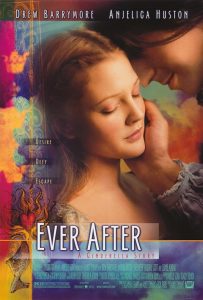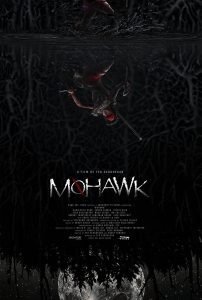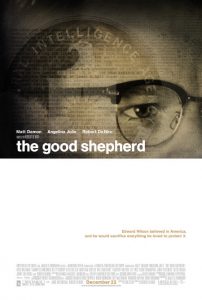 For Valentine’s Day, Mary suggested we watch an old favorite of hers[1] that she hadn’t seen in a while and I hadn’t seen at all. Ever After is a semi-realist take on the Cinderella story, in which Drew Barrymore suffers under the yoke of her dissatisfied stepmother Angelica Huston[2], but then ends up in the mistaken identity trope of a romantic comedy when she inadvertently encounters the prince of France while trying to free a family servant from being indentured to the Americas.
For Valentine’s Day, Mary suggested we watch an old favorite of hers[1] that she hadn’t seen in a while and I hadn’t seen at all. Ever After is a semi-realist take on the Cinderella story, in which Drew Barrymore suffers under the yoke of her dissatisfied stepmother Angelica Huston[2], but then ends up in the mistaken identity trope of a romantic comedy when she inadvertently encounters the prince of France while trying to free a family servant from being indentured to the Americas.
And I do not use “trope” advisedly; it’s more like a term of art here, because the plot never rises above its rom-com trope roots, and indeed it never tries to. But it’s also the kind of movie you’d watch on Valentine’s Day, you know? Plus, and this is technically a spoiler, any movie that turns Leonardo Da Vinci into a fairy godmother is a-okay in my book.
[1] By way of seeing one of the stepsisters in the latest episode of The Last of Us, and being reminded of the movie’s existence
[2] Perversely, she’s quite a bit less nice than when she played Morticia Addams

 I went to a lot of movies this weekend. Well, three, but three is kind of a lot, I think. One was
I went to a lot of movies this weekend. Well, three, but three is kind of a lot, I think. One was